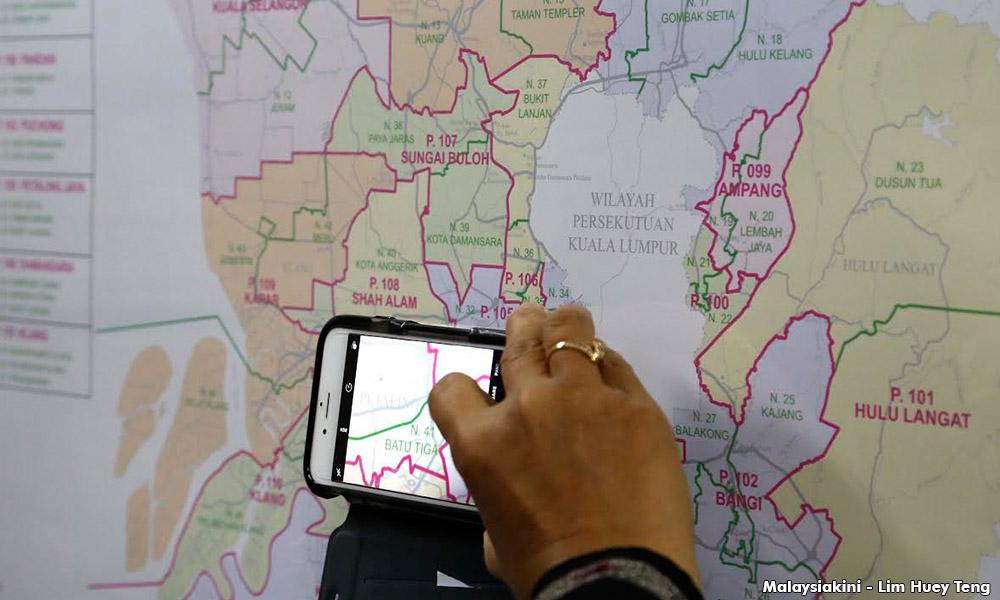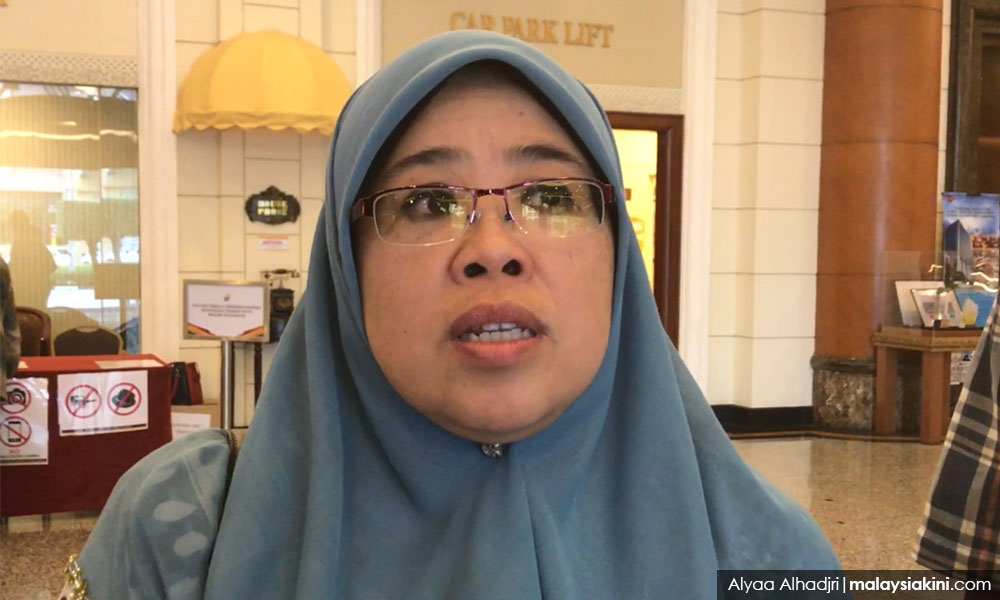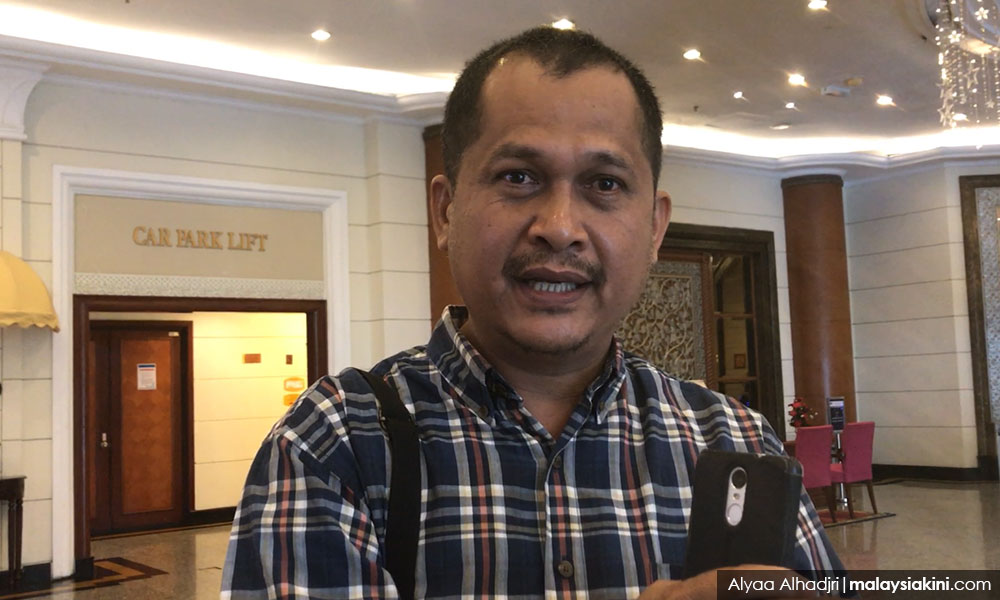
A group of voters from Taman Saujana Utama - a locality under the N12 Jeram state seat - has raised objections against the Election Commission's plans to move them into the N38 Paya Jaras state seat under its ongoing redelineation exercise.
Their main ground of objection was that the move could cause "confusion" as they would be transferred from Jeram, under the P96 Kuala Selangor parliament seat, into the new P107 Subang which is to be renamed as Sungai Buloh.
The two groups, who separately raised their objections on the third day of EC's public inquiry held at a hotel in Shah Alam, also represented Amanah and PAS divisions from Kuala Selangor.
Amanah Taman Saujana Utama branch member Hafizah Ghazali (photo) was the first to raise her objections with the seven-member EC Panel.
"Our main objection was that there would be two (local) administrations for a small taman.

"This could cause confusion among residents," she said.
Voter Abdul Hakim, also from Amanah Taman Saujana Utama, explained that they would remain under the administration of the Kuala Selangor District Council, despite voting in the new Sungai Buloh seat which falls under the administration of the Shah Alam City Council.
"This could cause problems (for residents) when we need to deal with local issues such as drainage, trees, traffic jams and others," he said.
Aside from the Taman Saujana Utama locality, Amanah member Yusri Harun (photo) also said they had objected to a proposal to move the Kg Bukit Ceraka locality from Jeram to N11 Ijok state seat.

"Another worrying aspect of this redelineation exercise is the attempt to break up (Jeram) by taking a Malay-majority area in Felda Bukit Ceraka and moving it to Ijok.
"This may be an attempt by Umno/BN to win Ijok which is now held by PKR," he claimed.
Kuala Selangor PAS division deputy chief Mohd Fakaruddin Ismail (photo), meanwhile, said that he and two others had raised similar objections over the proposed transfer of voters from Taman Saujana Utama and Kg Bukit Ceraka.
Fakaruddin, a voter in Kg Bukit Ceraka, noted that the proposal could create problems for residents seeking assistance from the Kuala Selangor local authorities.
"Many of the voters were also involuntarily transferred. They want to vote in Jeram but are being made to vote in Ijok," he said.

At the same time, Fakaruddin (photo) also noted that the proposed transfer of some 5,000 voters from Kg Bukit Ceraka to Ijok could boost the percentage of Malay voters in the area, from approximately 40 percent to around 60 percent.
Aside from voters being moved out of Jeram, Fakaruddin said his group of 10 representatives also raised objections against incoming voters from Ladang Tuan Mee in Ijok, into Jeram, on the same grounds of access to local administrations.
The ongoing redelineation exercise has been marred by allegations of malapportionment and gerrymandering, and formal objections were filed by voters.
The EC is required to hold inquiries to consider these objections under Part II of the 13th Schedule of the Federal Constitution.
Should the EC decide that changes to its proposals are necessary, it would be required to display the new proposal and allow objections to be filed for 30 days, and then hold the second and last round of local inquiries on those objections.
Otherwise, it may submit its proposal to the prime minister, who is to table it in Parliament for approval by a simple majority.
If approved, the recommendations would be passed to be Yang di-Pertuan Agong in the form of a draft order to be issued, and hence becomes law.
Otherwise, the prime minister may make changes to the proposal in consultation with the EC, and then table it in the Dewan Rakyat again.
The EC public inquiry for Selangor started yesterday and scheduled to go on until Jan 8.- Mkini


No comments:
Post a Comment
Note: Only a member of this blog may post a comment.